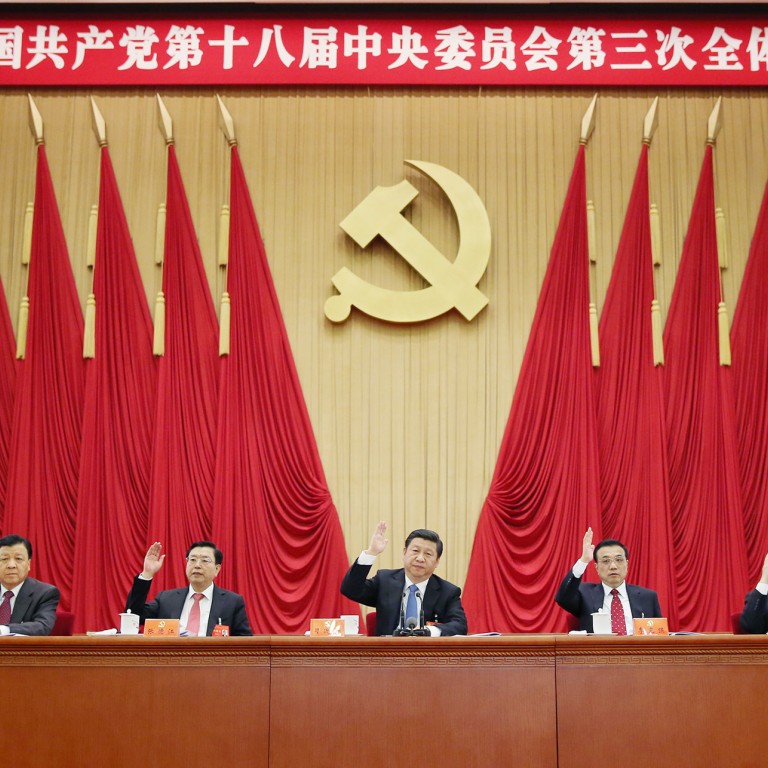
Let 2014 be China's year of reform
Hu Shuli says the government can start by plucking some low-hanging fruit while it works on more complex plans for overdue change
The arrival of 2014 marks the start of China's real work of implementing major reforms.
Last year was a year of great change. Under a new leadership, the country brimmed with hope that long-stalled reforms could be rolled out, yet debate on which way to go grew ever more fractious. An anxious people waited for nearly a year before Beijing unveiled its blueprint for "comprehensively deepening reforms" at the third plenum of the Communist Party's 18th Central Committee. The move underlines top leaders' resolve to push on with reform, signalling there is no backing out.
Will there be truly groundbreaking change in areas of entrenched problems? We'll have to see. But at least there can be no argument now that change is needed.
The devil is in the details, however. A consensus will still have to be reached on the specifics - from change in which areas and at what level, to the methods and strategies to adopt. This is no mere battle of ideas; it is a tussle between different interest groups.
To achieve comprehensive change in all areas is not easy. It would help if we keep an open mind and protect the public space for rational discussion.
On topics that are especially controversial and problems that are particularly complex, the authorities should refrain from running roughshod over people's views. They should instead focus on solving the real problems at hand, first targeting the major bottlenecks with workable fixes.
In other words, we should first pick the low-hanging fruits. Some early success will mobilise public support for further reform. Officials can't afford to drag their feet.
Twenty years ago, leaders at the 14th Central Committee's third plenum pledged to build a socialist market economy. On January 1, 1994, they introduced a new tax system and a single exchange rate system, merging the "official" and market rates. Reform of the financial system and macroeconomic policy adjustments soon followed. These moves assured other countries that China was serious about market reform.
At the third plenum of the 16th Central Committee a decade later, leaders further pledged improvements to the market economy. Sadly, many of their innovative ideas remain untested. This goes to show that national leaders' backing will count for little without real action.
This time around, regulators have kept busy since November's third plenum. On November 30, the China Securities Regulatory Commission rolled out a series of measures to modernise its IPO listings; on December 4, the State Council announced that, from this year, value-added tax reform would be expanded to include the rail and postal sectors; on December 8, the People's Bank of China published new rules on deposit certificates in the interbank market, taking yet another step towards fully floating rates; on December 14, the State Council said authorities would expand and liberalise access to its over-the-counter market to all qualified small and medium-sized enterprises.
These are welcome moves, but given the immensity of the task, we urge decision-makers to rise to the challenge. With reference to the strategic areas for reform set out at the recently concluded Central Economic Work Conference, these should be the priorities for 2014:
- For the economy, we should focus on reform of the tax and financial systems, as well as companies linked to local governments. Further opening up China's economy is also important.
- In politics, we should set clearer rules and regulations for officials and strengthen oversight of their conduct. This includes publicising the dos and don'ts for local officials, allowing and protecting the space for public debate, and strengthening the rule of law.
These are the low-hanging fruits of reform. Local officials should be judged by their efforts towards achieving these goals.
Other reforms await further decisions by the central government before they can be rolled out, and this should be done sooner rather than later. Two major economic reforms lie ahead: land reform and reform of the giant state-owned enterprises, which should see substantial changes to the capital market, state assets being channelled to fund social security, and restrictions on monopolistic behaviour to reinvigorate the private sector.
Meanwhile, the National People's Congress and the Chinese People's Political Consultative Conference meetings in March will be keenly watched for signs of political progress, particularly as the third plenum has pledged to improve constitutional law and the rule of law.
China has already waited too long to carry out some much needed reforms. The longer we wait, the more entrenched the vested interests, and the more difficult future change will be. As we prepare to welcome the Year of the Horse, we would do well to emulate the verve and tenacity of a horse in going the distance.

